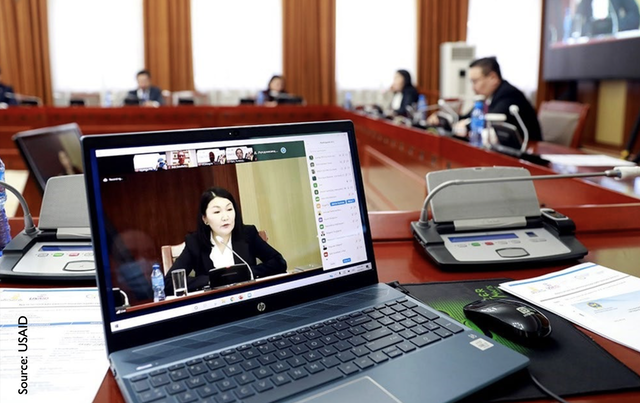
Why Governments Deploy ICT4D Projects
Governments use digital services to increase constituent services by improving efficiency, communication, accessibility, transparency, decision-making, and innovation. This strategic integration of e-Government technology helps governments enhance their operations and better serve their constituents.
Governments use e-government programs and digital services to increase constituent services for several reasons:
- Improved efficiency and productivity: E-government programs can streamline administrative processes, reduce paperwork, and save time and money, ultimately leading to more efficient and productive government operations.
- Better communication and accessibility: E-government programs facilitate better communication between governments and citizens, creating a more open market and a stronger economy. By digitizing government services and information, e-government can increase accessibility to public services and improve the overall customer experience.
- Increased transparency and accountability: E-government can improve government transparency by allowing the public to be informed about what the government is doing. This creates a more informed and engaged citizenry, which can lead to increased trust in government.
- Enhanced decision-making and resource allocation: By leveraging data and information collected through e-government programs, governments can make more informed decisions and allocate resources more effectively, resulting in better program outcomes and better support for constituents.
- Improved constituent experience: E-government programs can provide personalized experiences to constituents by collecting, unifying, and activating data to draw meaningful insights and provide proactive solutions to their needs.
- Promotion of innovation and collaboration: By utilizing e-government programs, governments can foster collaboration and promote innovation among stakeholders, leading to the development of more innovative and sustainable solutions.
Libraries Increase Access to Online Services in Myanmar
As Myanmar’s government ministries offer more comprehensive e-government services, rural communities have the most to gain because of their geographic isolation...
Please RSVP Now: Will P2P Financing Succeed Where Microfinance Has Failed?
Lusaka Salon – June 11th – RSVP Now
Micro-sized loans, often with macro-sized interest rates, were the craze back in the go-go ’90s, and fueled...
5 Principles for Better Universal Service Fund Investments
Telecommunications is a lucrative business that generates a great deal of profit for network operators. Unfortunately, but not unsurprisingly, telecommunications...
Twitter Chat TODAY #ICTchat – Digital Payments in Developing Countries
Safety and transparency are very important issues when it comes to sending and receiving digital payments within developing countries. Join us on TODAY at 12...
Can ICTs Improve Democracy and Governance in Myanmar?
Internet access, in particular via mobile technology, gives citizens a medium through which to exercise their political voice. It can be used to challenge preexisting...
Software Solutions to Four Main Challenges Facing Local Civic Groups
Civil society groups, political parties and government institutions around the world all face challenges when it comes to organizing and communicating. But in the...
No Electricity Means No Internet: It’s Time to Bridge the Gap!
“I came to Uganda to run the technical side of a mobile phone company. Instead, I was running the largest diesel fuel distribution company in the country—in...
Are These 6 Steps All That’s Needed to Ensure Digital Inclusion?
The Government Digital Service (GDS) is leading the digital transformation of the UK government and they like to release things early for review and comment. The...
Dear USAID: What Were You Thinking With Cuban Twitter?
Imagine the scene: a stale conference room off Barcelona’s lively La Rambla, an assortment of techies, government bureaucrats, and development contractors...
How ICTs Enhance Environmental Sustainability Projects
Andris Bjornson – Inveneo
In December, the Global Environment Facility (GEF) hosted its CEO Forum on Innovation Partnership, focusing on the use of ICTs to...











